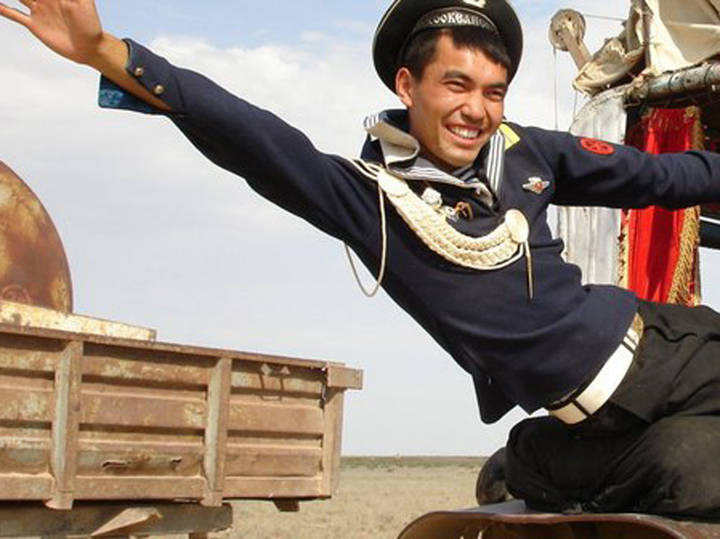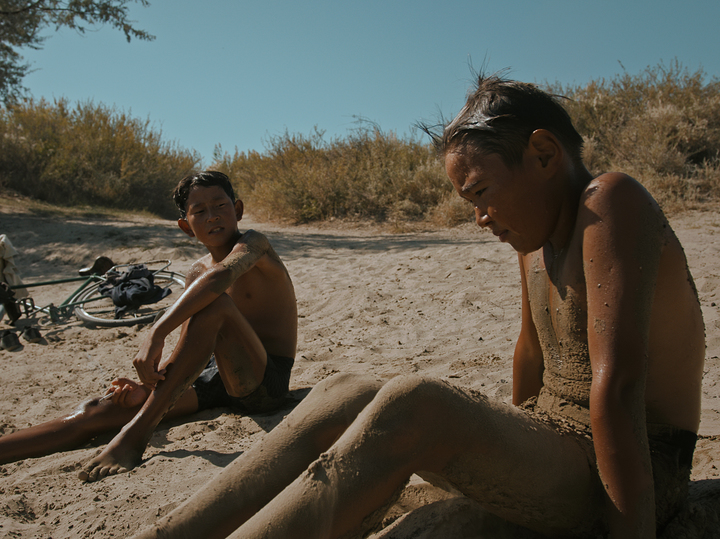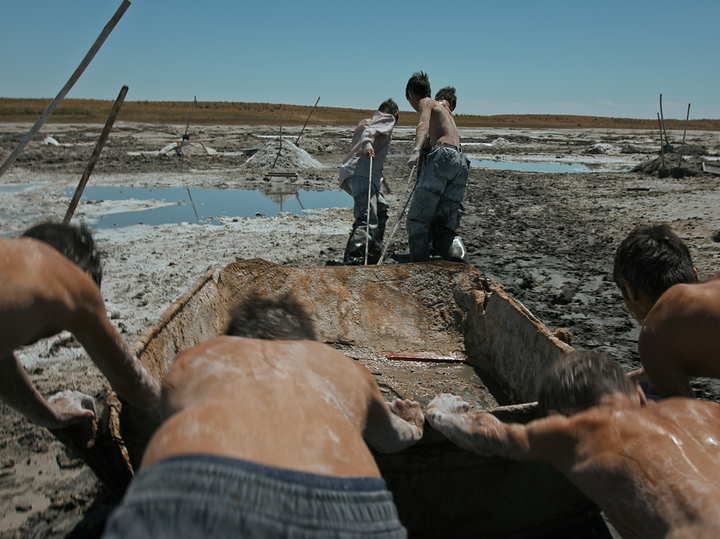Askhat Kuchirinenkov starred in “Tulip” and “Ike”, and now made his debut as a director
[ad_1]
For the first time, film lovers recognized Askhat Kuchirinenkov thanks to the film “Tulip” by Sergei Dvortsevoy about the life of shepherds in the steppe. In 2008, the film received the Grand Prix in the Un Certain Regard competition at the Cannes Film Festival. Ten years later, Askhat starred in Dvortsevoy’s “Ike” about the life of Kyrgyz migrants in Moscow. The premiere also took place in Cannes in 2018, but in the main competition, and the leading actress Samal Yeslyamova was awarded the Silver Palm for Best Actress. Askhat worked at Hayka not only as an actor, but also as an assistant director.
For his full-length film “Bauyrina Salu” Askhat Kuchirinenkov received the so-called Asian “Oscar” in Brisbane, Australia, which is presented by the Film Academy of the Asia-Pacific Region. The lessons of Sergei Dvortsevoy were not in vain. “Tulip” was filmed in the steppes of Southern Kazakhstan for four whole years, and the actors lived in a yurt and filmed together with local residents. In Askhat’s film, a lot happened exactly like this.

Filmmakers from China, Brazil, Iran and other countries who came to see the “Spirit of Fire” first learned about the existence in Kazakhstan of the “Bauyryn Salu” tradition, according to which the eldest child in the family, immediately after birth, is transferred to be raised in another family, with relatives, so that maintain the purity of one’s family, avoid incest.
The hero of the film, 12-year-old Ersultan, lives with his grandmother in the village, helps her with housework, washes her (this scene is especially impressive – the child rubs the old woman’s back with a washcloth). His parents are far away, and the boy constantly looks at their photograph before going to bed. When his grandmother dies, Ersultan returns to his family, which is like a stranger to him. The final credits say that the director spoke about his own life. The film was superbly shot by cameraman Zhanarbek Yeleubek, and the environment was beautifully reproduced by production designer Azamat Israilov.
Askhat Kuchirinenkov is 41 years old. We met fifteen years ago in Belye Stolby, near Moscow, at an international film school, which was conducted for aspiring filmmakers from the post-Soviet space by Rustam Ibragimbekov. Together with him, the director from Kazakhstan Adilkhan Erzhanov studied there, without whom the main festivals of the world from Cannes to Venice are now indispensable, as well as Marina Vroda from Kiev, who received the Palme d’Or at the Cannes Film Festival for the short film “Cross” and an award for directing in Locarno for the film “Steppe”. Askhat was already known then as an actor from the film “Tulip”.
“It was my most wonderful time,” says Askhat. — Guys from all post-Soviet republics came to Belye Stolby. We watched and discussed each other’s films, talked until the morning in the lobby, ate and drank together, and danced. Still, they were young, 25 years old. There were so many girls, and all of them were beautiful. Some guy joined us, talked about cinema until six in the morning, and then left somewhere. We thought he was from Moscow and asked: “Who are you?” And he replied: “I’m a taxi driver here.” And what kind of pilaf Ali Khamraev prepared for us, explaining how to make a movie. Golden time!
– What happened to you since then?
— I made a short film “Run Out of Gas” in 2013. He participated in the Tampere Film Festival and received a prize in Dubai. Then Sergei Dvortsevoy invited me to Aika. In 2018, I started working on my film. That’s all. The screening in Russia at the “Spirit of Fire”, which was once organized by Sergei Soloviev, was very important to me. He is an important person in Kazakhstan, he trained a talented galaxy of our directors.
— Does the tradition about which your film is based exist in a specific nomadic region? I have been to Kazakhstan more than once, but have never heard of it.
—Have you communicated with the Kazakhs? This tradition exists throughout the country. Do you know film director Rustem Abdrashev and actor Asanali Ashimov. They grew up in this tradition. Do you know our singer Dimash? He was brought up the same way.

— If everything we saw happened in your life, then how did you later communicate with your parents?
— We communicate with them normally. It is not that all ties are severed forever. There was just emptiness inside.
– Who raised you?
– Grandmother. Mom’s mother. Like in a movie.
“It even seemed to me that your young hero returned not to his family, but to distant relatives.” You feel alienated and cold.
– This is exactly how you perceive it. Today’s parents are different. What were your parents like? Just like today’s youth? No. We just put our own ideas on everything. Nowadays, as a rule, there are one or two children in a family. Imagine your childhood when there were four to six children in a family. Will everyone really be treated so warmly?
— How many brothers and sisters do you have?
– There are two of us. I have a sister. She stayed with her parents, and I was given to my grandmother to raise. Living in harsh natural conditions, in the countryside, people express their emotions differently. And we in the city think that everyone should be just as sensitive and constantly say: “Oh, sorry,” “Don’t be offended.” Everywhere there are hard people and soft ones. Our Olympic champion Buvaysar Saitiev told how his father kept his children strict in order to toughen them up. The people in the village must be physically and spiritually powerful, otherwise a tree cannot be cut down. This is how we are raised.
— How did you find the actor Ersultan Yerman?
“I immediately chose him as soon as I saw his eyes.” He participated with his parents in a television program.
– Did you see your eyes in his?
– No. I saw sadness in them and realized that he would do everything great.
— The boy had no acting experience? Is he a city child or from the countryside?
— His family lives near Almaty. Now Ersultan is 14 years old, but he was 11 during the filming. He is a debutant. We kept him in the village for a year and a half while filming was going on. Ersultan had to live in the scenery. We both rehearsed in locations and lived in them. I myself slept on the same bed as our heroes.
– What about school? Didn’t Ersultan study during filming?
— He studied locally in three schools in a year.
How did his parents take it all?
– Fine. They want their son to become a good actor. They have motivation. Otherwise, it’s like sending a ballerina to a choreographic school and then saying: “Don’t stretch her.” That doesn’t happen either.
— Are grandmothers and children ordinary people?
– All locals. These are the villagers. The schoolchildren are real too. This is a class from my childhood. It was important that there be a certain relationship between the guys. I tried to work with other classes, but when he is alone, it’s a total hurricane. But these are not documentary footage, but staged ones. The role of the father was played by a professional actor. I am a fan of Alexei German Sr., and you can feel it in my film.

— Is it difficult to work with children? How was the work on the film overall?
– The main thing is that the children accept you. To do this you need to be close to them. That’s all. I psychologically kept Ersultan in the right state. He lived next to me, slept next to me. Constant monitoring is needed. The work lasted for three years. At some point the money ran out. Everything is like everyone else. I started the pandemic, in 2020, when everything was prohibited. The police came to us all the time. It was impossible to leave the village anywhere. Everyone was afraid that the epidemic would leak there from the city. At the time, no one really knew what kind of disease it was. We did everything ourselves. We had a bare house that we rented. The budget was very small.
— Is the current situation similar to the one you had with Sergei Dvortsev? Your hero was also called by your real name.
“Everything was different for me.” I was older and already studied at the directing department at the Kazakh Film Academy. There was a guy who filmed everything in the dorm. Sergei Dvortsevoy saw me in his footage.
– This is your personal story. Did it become easier after the film was made?
— I received purification through cinema. It’s hard to live with such a burden. I travel with the film to different countries, spectators come up and tell their stories. Everywhere there is a problem of fathers and children. Someone’s mother left, and he was raised by his grandmother or nanny. Someone doesn’t talk to their father because he punished them in childhood. Everyone shifts the situation onto themselves, although our tradition remains incomprehensible to some. If a child lives two or three years without parents, then the pain remains for life. And the film shows a nomadic tradition. There lives one village, and a disease may occur, and everyone will die of hunger. But the genes must remain. And the blood must be renewed. You know that if cousins or second cousins get married, their children may be born with disabilities. Until seven generations in the family, you do not have the right to marry relatives.
-Who is counting this? We often don’t know anything about our ancestors beyond three generations.
— In the villages we all know about our family. Your father tells you who your grandfather is in the third generation. You are talking to your son about the fourth generation. And he will tell his own about five generations.
— Do you and Sergei Dvortsev maintain a relationship?
– Certainly. He and I recently visited the Fajr festival in Tehran. I participated with my film in the Asian cinema program and received the jury prize, and Sergei worked on the jury of another competition.
— Where else did you show your film?
— I received the Asian Oscar for the best youth film in Australia. “Monster” by the famous Japanese director Hirokazu Kore-eda was presented in the same competition. Then there was a prize in Lloret de Mar, at a small festival near Barcelona. We participated in the youth festival in Paris, in San Sebastian at the largest international festival. We recently visited Brazil. There has not been a premiere in Kazakhstan yet. I myself am from the north, from Pavlodar on the Irtysh, but I live in Alma-Ata. Our art mainly develops there.
— How do you continue to work as an actor?
– Not yet. And before that, I acted once in three years. More often than not it was not possible. When I was filming myself, they kept calling. And now that the film is ready, no one invites.
[ad_2]
Source link






